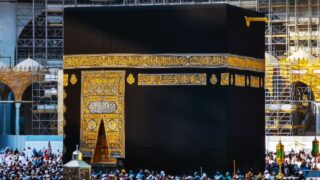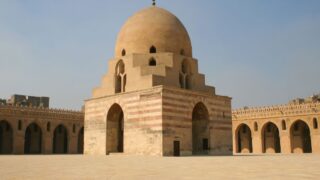One of the main differences between Islam and Christianity is the role of Jesus in the grand scheme of the Revelations from God Almighty. As someone who converted to Islam, I struggled with this concept for a long time.
The Role of Jesus in Christianity
It simply did not make sense to me that God would need a son. Further, I could not understand that if God did have a son, why He would allow him to be humiliated and crucified. The concept of Jesus dying for the sins of mankind also puzzled me. Why would Jesus need to die for man’s sins when God, the Creator of man, can simply say ‘Be’ and it ‘Is’?
These questions kept me awake many nights during my college years, prompting an exploration of different Christian denominations.
Searching for Answers
I visited various churches but never found satisfying answers. Finally, I sought guidance from my priest, Father Albert. As a Catholic, I expected him to provide clarity. However, his reaction was one of anger and dismissal, which indicated to me that even he did not have the answers.
Finding Clarity in the Quran
Fortunately, I found the answers a few years later when I read an English translation of the Quran. In Islam, both Jesus and his mother Mary are deeply respected, with an entire chapter dedicated to Mary.
The Birth of Mary
According to the Quran, Mary was born during a time of ritualistic practices with no basis in divine revelation. Her mother prayed for her offspring to serve God. Zechariah, a prophet, took on the responsibility of raising Mary, teaching her about religion and the laws of the land.
The Birth of Jesus
While Mary was praying, the angel Gabriel announced that she would bear a son named Jesus, who would be noble in this world and the hereafter.
[Quran 3:45-46] “Oh Mary! God gives you the good news of a word from Him. You will be given a son: his name will be the Messiah Jesus, the Son of Mary. He will be noble in this World and in the Hereafter. He will be among those who are closest to God.”
Mary questioned how she could have a son without being touched by a man, to which Gabriel responded:
[Quran 3:47] “She said: My Lord! how shall there be a son (born) to me, and man has not touched me? He said: Even so, God creates what He pleases; when He has decreed a matter, He only says to it, Be, and it is.”
Miracles of Jesus
Jesus performed numerous miracles by God’s leave, such as curing leprosy, healing blindness, and raising the dead.
[Quran 3:49] “I have come to you with a sign from your Lord: I make for you out of clay, as it were, the figure of a bird, and breathe into it and it becomes a bird by God’s leave. And I heal the blind and the lepers, and I raise the dead by God’s leave.”
Despite his miracles, Jesus faced opposition. The Jewish leaders plotted to crucify him, but the Quran states that he was not crucified; it only appeared so. Instead, Jesus was raised to the heavens and will return to complete his mission.
Jesus in Islamic Theology
In Islam, Jesus is not considered the son of God. He is one of the prophets, a human like us, who delivered God’s message. The Quran emphasizes the oneness of God:
[Quran 112:1-4] “Say: He is God, the One and Only God, the Eternal, Absolute. He begets not, nor is He begotten. And there is none like unto Him.”
Ascribing partners to God is the one sin that Islam considers unforgivable.
Conclusion
In conclusion, Jesus holds an esteemed position in Islam as a prophet, not as the son of God. This belief highlights the core Islamic principle of monotheism and the rejection of divine sonship, offering a distinct perspective compared to Christianity. Through the teachings of the Quran, I found clarity and answers to my long-held questions.
By Sumayyah Meehan


















